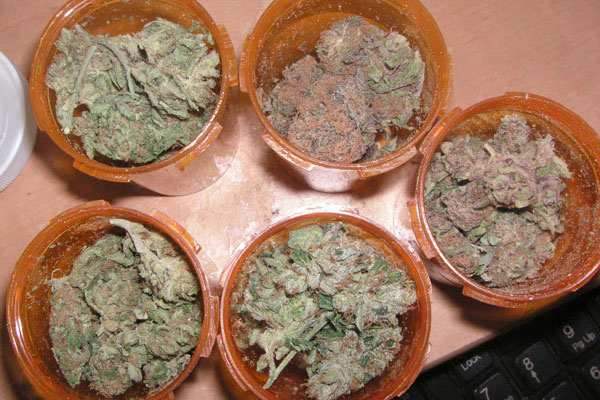-
Tips for becoming a good boxer - November 6, 2020
-
7 expert tips for making your hens night a memorable one - November 6, 2020
-
5 reasons to host your Christmas party on a cruise boat - November 6, 2020
-
What to do when you’re charged with a crime - November 6, 2020
-
Should you get one or multiple dogs? Here’s all you need to know - November 3, 2020
-
A Guide: How to Build Your Very Own Magic Mirror - February 14, 2019
-
Our Top Inspirational Baseball Stars - November 24, 2018
-
Five Tech Tools That Will Help You Turn Your Blog into a Business - November 24, 2018
-
How to Indulge on Vacation without Expanding Your Waist - November 9, 2018
-
5 Strategies for Businesses to Appeal to Today’s Increasingly Mobile-Crazed Customers - November 9, 2018
DEA maintains marijuana’s risky drug status
Gupta was also quick to call out the Administration’s hipocrisy on handling marijuana’s absurd classification.
Advertisement
“People can argue about the pluses and minuses of marijuana, but everyone knows it’s not a killer drug like heroin”, Sanders tweeted August 11, the same day news broke that the Drug Enforcement Agency (DEA) would not be reclassifying marijuana. Several Democratic legislators had urged DEA to reclassify marijuana to a Schedule II drug.
Despite that, proponents of medical marijuana research welcome the federal government’s decision to allow more universities to grow the drug. The government has repeatedly rejected appeals for reclassification.
Despite a promise to end a monopoly on marijuana research, the DEA has decided that cannabis should remain classified as one of the world’s most risky drugs with no medical value.
“This decision doesn’t go far enough and is further evidence that the DEA doesn’t get it”, Blumenauer said in a statement.
“HHS concluded that marijuana has a high potential for abuse, has no accepted medical use in the United States, and lacks an acceptable level of safety for use even under medical supervision”, the letter said.
Twenty-five states allow the medical use of marijuana for health conditions such as Parkinson’s, Alzheimer’s, Crohn’s, Tourette’s syndrome, lupus and rheumatoid arthritis, The Times reported. Alaska, Washington, Oregon, Colorado and the District of Columbia now allow recreational use for adults, while California and eight other states have recreational or medical marijuana proposals headed for their 2016 ballots.
The position of the USA government on marijuana has impacts for states that have legalized its recreational or medical use.
Oregon Gov. Kate Brown said the DEA’s ruling “makes it more hard for states that have legalized marijuana use, or who are poised to, to proceed lawfully and safely”.
Advertisement
The DEA only allows marijuana for federally sanctioned research to be cultivated at a garden at the University of MS, an operation overseen by the National Institute on Drug Abuse.





























